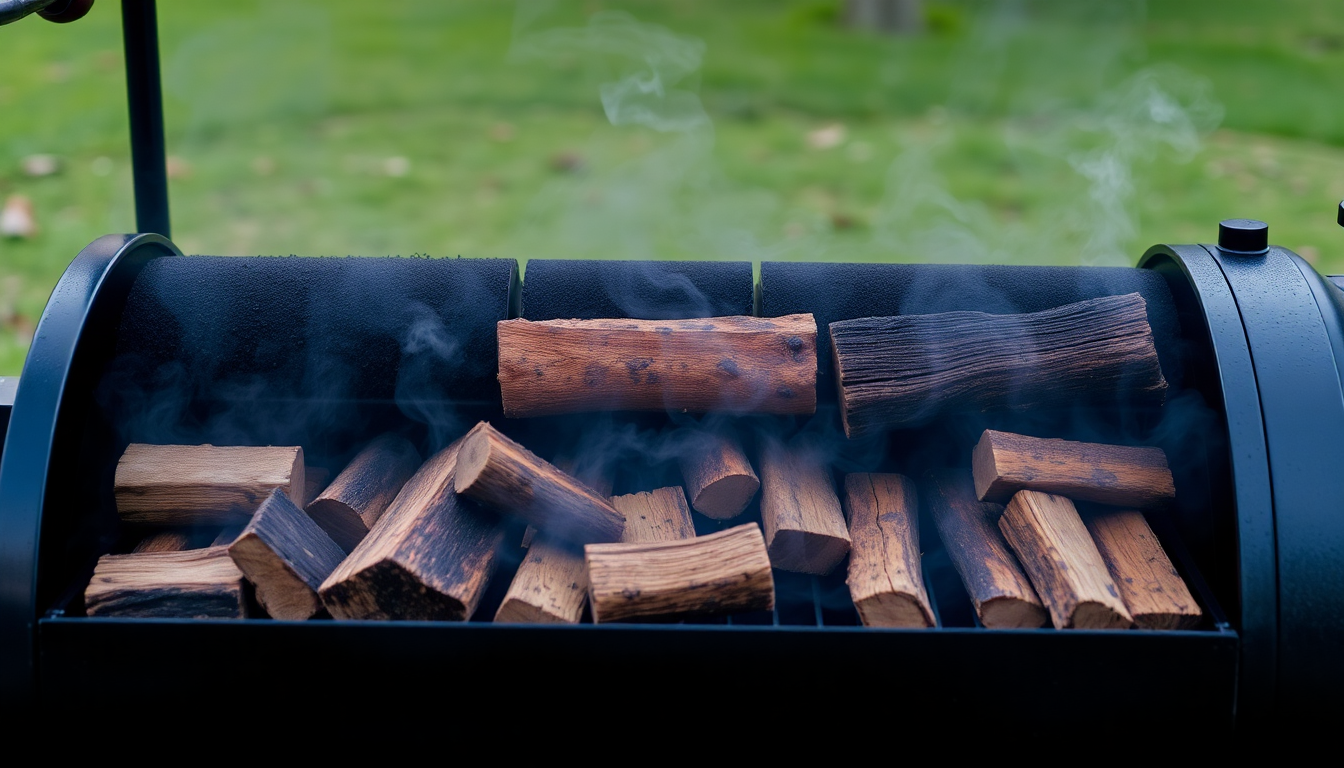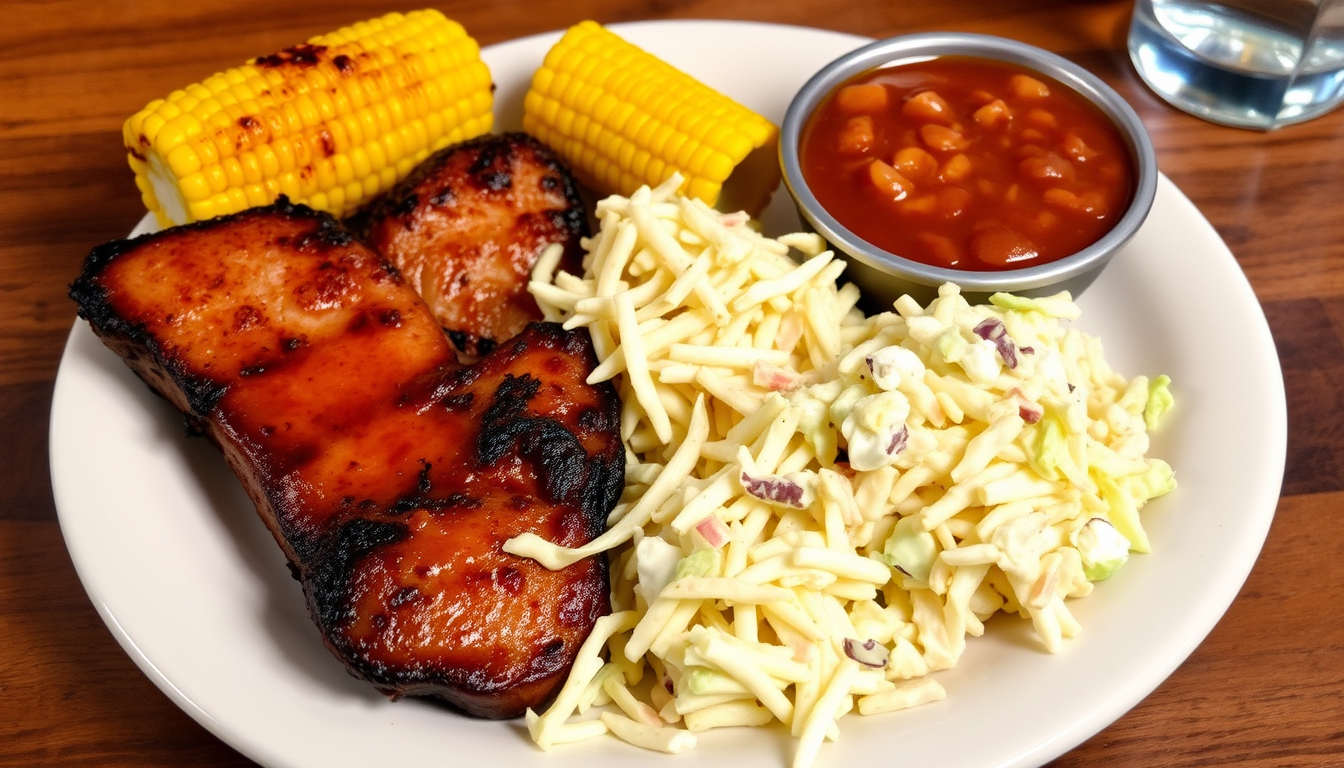Uncle Clarence BBQ News & Stories
Uncle Clarence BBQ News & Stories

Uncle Clarence BBQ News & Stories
The Ultimate Guide on How to Properly Clean and Season Your Smoker
The Ultimate Guide on How to Properly Clean and Season Your Smoker Introduction Growing up, my father ingrained in me the belief that a remarkable meal—whether smoked, grilled, or cooked—always begins with meticulous preparation. He often emphasized that the secret to his exceptional barbecue wasn't just the carefully crafted meat seasonings and sauces, but also the diligent maintenance of his smokers and grills. To him, the smoke was more than just a cooking medium; it was an integral seasoning component that imparted an additional layer of flavor to the food. He frequently reminded me that the purity of the smoke directly influenced the taste, underscoring the importance of clean smoke. My father viewed the time spent with his smoker and grill as an opportunity to form a deeper connection with the equipment. Understanding the nuances, such as the hottest and coolest zones, identifying areas where smoke might escape, and recognizing whether the smoker runs hotter or cooler than expected, were crucial insights he gained. This knowledge allowed him to adjust fuel sources accordingly, ensuring optimal cooking conditions and preventing food from burning or undercooking. He believed that mastering these elements before the actual cooking process was essential. This philosophy led me to the conviction that every outstanding barbecue experience starts with a well-maintained grill and smoker. Cleaning and seasoning these tools are not mere chores; they are fundamental practices that enhance the safety of your food and enrich the flavors, elevating your meats to legendary status. Let's delve into the importance of these maintenance steps and how mastering them can lead to consistently mouthwatering results. Why Cleaning Your Smoker is Essential Why Cleaning Your Smoker is Essential Enhanced Flavor: Regular cleaning of your smoker ensures that old grease, ash, and residue don't affect the taste of your food. By maintaining a clean smoker, you allow the true, rich flavors of your ingredients to shine through, preventing any unpleasant, burnt tastes from lingering. Improved Efficiency: A clean smoker operates more efficiently, as built-up residue can obstruct airflow and heat distribution. Cleaning your smoker ensures even cooking temperatures and better fuel efficiency, making your cooking process smoother and more cost-effective. Health and Safety: Removing grease buildup and food particles reduces the risk of flare-ups and minimizes the production of harmful bacteria and molds. A clean smoker helps prevent food contamination, protecting you and your loved ones from potential health hazards. Extended Lifespan: Regular maintenance, including cleaning, prolongs the life of your smoker. Corrosion and rust can develop from leftover ash and moisture, so keeping your smoker clean ensures it remains in good condition, saving you money on repairs or replacements. Consistent Performance: A well-maintained and clean smoker delivers consistent cooking results. By ensuring all components are free from obstruction and functioning optimally, you maintain the smoker's reliability, allowing you to focus on perfecting your recipes. Tools You’ll Need for Cleaning Basic Cleaning Supplies To effectively season and clean your smoker or grill, it's important to gather a few key tools to ensure the job is done right. Begin with a stiff brush, which is indispensable for thoroughly scrubbing the grates and interior surfaces, removing any built-up grime and ensuring optimal heat distribution. Stubborn residue can be tackled with a durable scraper, which is particularly useful for those hard-to-reach corners and crevices. Soft cloths play a crucial role in wiping down surfaces, leaving them clean and ready for use. Make sure to wear rubber gloves to protect your hands from grease and sharp edges during the cleaning process. Lastly, don’t overlook the importance of using flavored wood chips or chunks when seasoning; they infuse your smoker with delightful aromas and enhance the taste of your food, providing that authentic, smoky flavor you love. Recommended Cleaning Solutions When choosing cleaning solutions, consider your options carefully. Natural cleaners, like vinegar and baking soda, are effective and safe for food preparation surfaces. However, if you prefer chemical cleaners, be sure to choose food-safe products to avoid lingering residues. This balance will help you understand how to properly clean and season your smoker while keeping health in mind. Step-by-Step Guide on Cleaning Your Smoker Disassembling Your Smoker Before diving into the cleaning process, it's essential to disassemble your smoker safely. Remove the grates and any removable parts. Consult your smoker’s manual for guidance on disassembly. This step makes it easier to reach all areas needing attention, ensuring a thorough clean. Cleaning the Interior When cleaning the interior, tailor your approach based on the materials of your smoker. For stainless steel, a gentle cleaner will suffice; avoid abrasive materials to prevent scratching. Porcelain surfaces may require special attention—use a soft brush to prevent damage. Ensuring all old grease and burnt residues are removed will help enhance the smoky flavor of your next cookout. Cleaning the Exterior The exterior of your smoker deserves just as much attention. Use soapy water and a soft cloth to clean the outside surfaces. Rinse thoroughly to remove any soap residue. Be cautious not to let water enter internal components, as this may lead to rust or malfunction. Consistent exterior cleaning helps maintain the overall appearance and longevity of your equipment. How to Season Your Smoker Once your smoker is clean, it’s time to season it, which prepares it for cooking. Seasoning creates a protective layer that improves flavor and prevents rust. What Does Seasoning Involve? Seasoning your grill and smoker is an essential step in maintaining their longevity and ensuring optimal performance. This process involves applying a thin layer of oil to the grates, interior, and exterior surfaces to create a protective barrier against rust and enhance the flavor of your food. To begin, choose an oil with a high smoke point, such as vegetable oil, canola oil, or grapeseed oil, as these oils withstand higher temperatures without burning. First, clean the surfaces thoroughly to remove any residue or debris. Then, using a clean rag or spray bottle, evenly apply the oil to all the surfaces, including the grates, racks, and the smoker's interior. It's crucial to cover every nook and cranny for maximum protection. Once the oil is applied, heat your smoker to a temperature between 225°F and 350°F. Allow it to smoke for approximately 2½ to 3 hours. This heating process helps the oil to polymerize, forming a durable, non-stick coating that not only prevents rust but also imparts a subtle seasoning to your food. Regular seasoning of your smoker will keep it in prime condition, ensuring mouthwatering results every time you cook. As a side note, the seasoning process is not just about preparing your smoker or grill for optimal performance; it's also an opportunity to infuse your meats with rich, aromatic flavors. By selecting the right type of wood, such as apple, cherry, or hickory, you can greatly enhance the taste profile of your dishes. Each wood type imparts a unique flavor—apple offers a mild, sweet taste, cherry provides a slightly tart undertone, and hickory delivers a strong, smoky essence. Carefully choosing your wood at this stage will ensure that your culinary creations are not only cooked to perfection but also bursting with the desired flavor. Smoker Maintenance Tips Regular maintenance ensures that your smoker operates effectively and lasts for years. Here are a few practical smoker maintenance tips: Regular Cleaning: Make it a habit to clean your smoker after each use. It doesn’t have to be a deep clean every time; a quick wipe can go a long way. Check for Rust: Regularly inspect your smoker for signs of rust. If you spot any, scrub it off immediately and apply oil to prevent further corrosion. Store Properly: If your smoker is stored outdoors, invest in a quality cover. This protects against the elements, and keeps it in top condition. Calibrate Temperature: Make sure to periodically check if your smoker maintains the right temperature. This ensures juicy and perfectly cooked meats every time. Finial Tip: Before diving into cleaning and seasoning your smoker, ensure your temperature gauge is properly calibrated. Fill a pan with boiling water and place your smoker's thermometer in it. It should read 212°F (100°C) at sea level. If it doesn’t, consult your thermometer's manual for calibration instructions. Accurate temperature readings are crucial for achieving perfectly smoked dishes! Conclusion Cleaning and seasoning your smoker may seem daunting, but with the right tools and knowledge, it’s quite manageable. Regular maintenance and care will not only enhance your cooking experience but also ensure delicious, safe barbecues year-round. Next time you fire up your grill, remember that how to properly clean and season your smoker can greatly influence your cooking success. Happy grilling!
- Choosing a selection results in a full page refresh.
- Opens in a new window.


